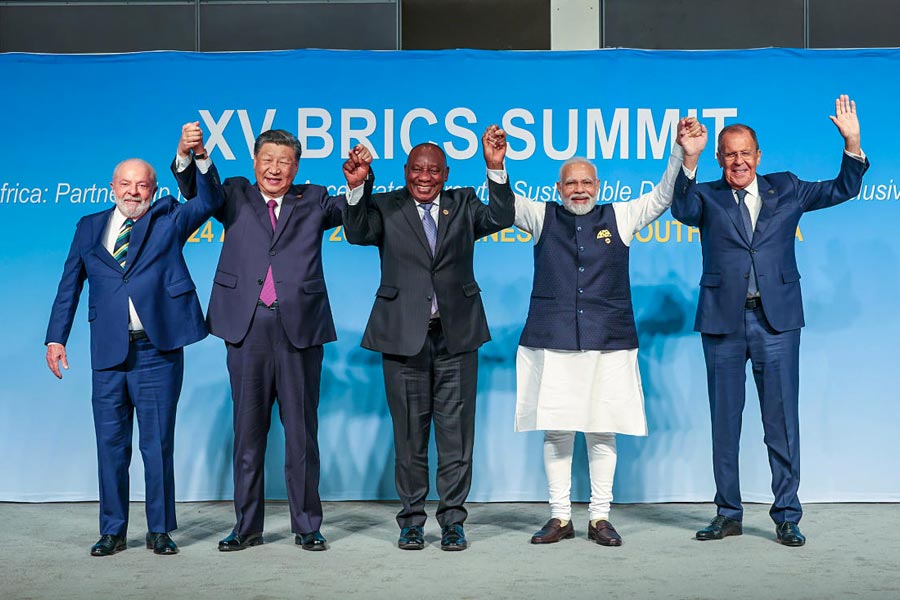The decision by the BRICS grouping of Brazil, Russia, India, China and South Africa to expand and include six new members, taken at their Johannesburg summit earlier this week, is a sharp reminder of a shifting global order as more and more nations reposition themselves geopolitically. Argentina, Iran, Saudi Arabia, the United Arab Emirates, Ethiopia and Egypt will join the BRICS in early 2024. Prior to the summit, reports had suggested differences among the five existing members over the group’s expansion. Those concerns still likely linger among the strategic communities of some of the members, especially India, Brazil and South Africa, which, while seeking to maintain their strategic autonomy, are keen to not alienate the West. That they nevertheless agreed to the expansion shows that the BRICS, unlike many other such collectives, is able to take tough decisions. Yet the expansion could prove to be a double-edged sword, simultaneously increasing the group’s global clout while leaving it exposed to the consequences of deep internal tensions — especially between China and India.
The combined GDP of the bloc, which currently stands at just under $26 trillion, will go up to $29 trillion. That will include the two biggest economies of Asia, South America and the Middle East and two of the three largest economies of Africa. The expansion will no doubt enhance the ability of the grouping to proclaim itself as the most powerful and legitimate voice of the Global South. Funding from Saudi Arabia and the UAE will help bolster the finances of the collective’s New Development Bank, positioning it as a credible alternative to the World Bank and the Asian Development Bank. The oil resources of Russia, Saudi Arabia and the UAE, coupled with the unmatched energy appetite of China and India, could make the club a decisive factor in global crude market decisions. And if the grouping decides to move to the use of their national currencies in bilateral trade among themselves instead of the dollar of the United States of America, the implications for global finance, currently dominated by the American currency, will be significant.
Yet all of that will depend on whether the expanded grouping can maintain a unity of purpose. India and China are locked in a tense border dispute, which was the focus of a brief meeting between Prime Minister Narendra Modi and President Xi Jinping in South Africa. If the bloc’s two largest economies are fundamentally suspicious of each other, can the collective move in any one direction? While Iran’s relations with Saudi Arabia have improved significantly in recent months, they are far from stable. Egypt and Ethiopia have differences on water-sharing. While refusing to sanction Moscow or send weapons to Kyiv, both Argentina and Brazil have condemned Russia’s invasion of Ukraine. It is not even clear what the bigger bloc will be called. Unless member countries can find enough adhesive to stick together, the grouping risks imploding.










